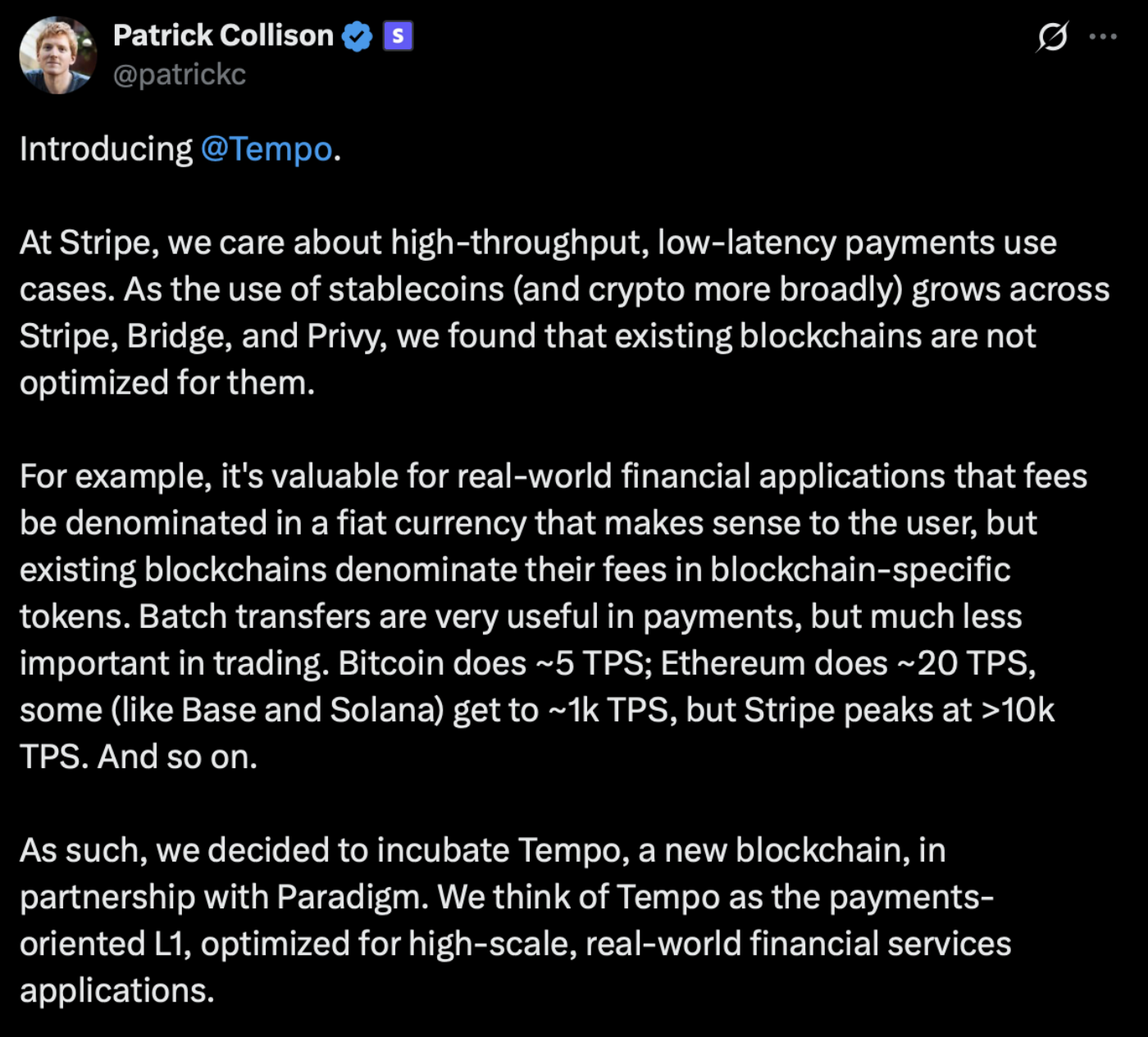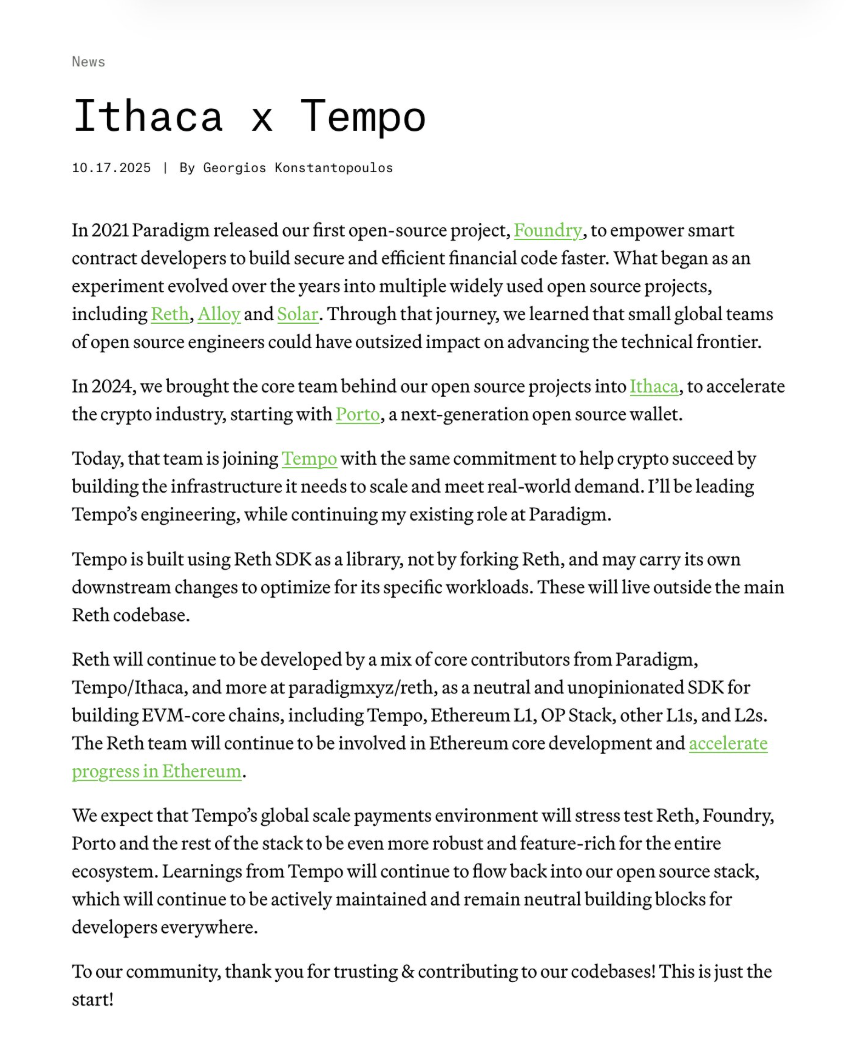
Stripe’s blockchain project, Tempo, has successfully secured $500 million in a Series A funding round led by Greenoaks Capital and Thrive Capital, establishing a valuation of $5 billion according to reports from Fortune.
The funding effort attracted additional participation from Sequoia Capital, Ribbit Capital, and Ron Conway’s SV Angel, though both Stripe and Paradigm did not make extra investments, according to a source familiar with the deal.
This development emerges less than two months after Stripe announced plans for its new layer-1 blockchain, aimed at enhancing solutions for stablecoins and real-world payments, in partnership with Paradigm, a firm focused on investing in crypto and Web3 startups.
On September 4, Stripe’s CEO Patrick Collison stated on social media, “As the utilization of stablecoins and crypto expands across Stripe, Bridge, and Privy, we’ve realized that the current blockchains are not tailored for them. Together, we envision Tempo as a payments-optimized layer-1, geared for significant real-world finance applications.”
 Source: Patrick Collison
Source: Patrick Collison
Source: Patrick Collison
Source: Patrick Collison
Although no official launch date for Tempo has been announced, Georgios Konstantopoulos, CTO of Paradigm, mentioned that the primary team from its open-source projects, located in Ithaca, will collaborate with Tempo to develop its payment infrastructure and enhance engineering capabilities.
 Source: Georgios Konstantopoulos
Source: Georgios Konstantopoulos
Source: Georgios Konstantopoulos
Source: Georgios Konstantopoulos
A Competitive Stablecoin Market
While Stripe has yet to share plans for a native Tempo token, its focus on payments infrastructure positions it against several stablecoin issuers that are already integrated within global payment systems. One notable rival is Circle, the issuer of USDC, a stablecoin that maintains a 1:1 peg to the US dollar and is integrated with both Mastercard and Visa. USDC emerged in 2018 and presently sustains a market capitalization of approximately $75.6 billion, trailing only behind Tether’s USDt.
In August, Circle indicated the upcoming launch of a layer-1 blockchain to establish an enterprise-grade foundation for stablecoin transactions, capital market functionalities, and foreign exchanges.
The prevailing momentum in the stablecoin sector has been fueled by the enactment of the GENIUS Act in the U.S., which aims to frame federal regulations for stablecoin issuers, established in July. Additionally, stablecoins pegged to the euro are gaining traction as the European Union strives to compete with dollar-dominated tokens.


